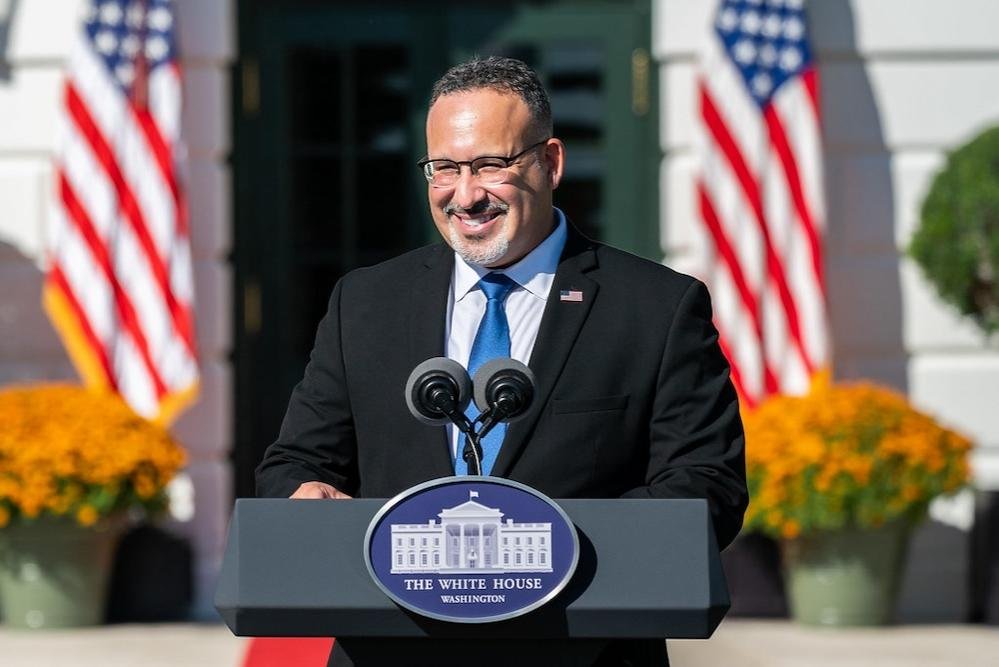arizona
Controversial Final Title IX Rule Takes Effect Amid Blockade in 26 States

The Biden administration’s final rule for Title IX, designed to extend federal protections to LGBTQ students, faced significant legal obstacles as it went into effect nationwide this Thursday. Although the rule was intended to be universal, it currently applies only to 24 states, the District of Columbia, and Puerto Rico, due to widespread legal challenges.
These challenges emerged swiftly after the Department of Education released the final rule in April. A total of 26 states, represented by GOP attorneys general, immediately sought to contest the measure. Consequently, legal blocks prevent the updated regulations from being enforced in these states.
U.S. Secretary of Education Miguel Cardona and Catherine Lhamon, Assistant Secretary for the Department of Education’s Office for Civil Rights, publicly celebrated the rule during a briefing on Thursday. Cardona highlighted the extensive public input and effort that shaped the new regulations, emphasizing their importance for creating safe and inclusive school environments.
“These regulations make crystal clear that everyone has the right to schools that respect their rights and offer safe, welcoming learning environments,” Cardona stated.
Lhamon acknowledged the volatile legal landscape, affirming the department’s intention to defend the rule with the support of the Department of Justice. She noted ongoing appeals against the current injunctions and clarified the department’s request for the Supreme Court to permit the unchallenged provisions to take effect in the blocked states.
The Supreme Court has yet to decide on the department’s emergency request, which came from U.S. Solicitor General Elizabeth Prelogar. The updated Title IX rule aims to protect against discrimination based on sex stereotypes, sexual orientation, gender identity, and sex characteristics, while also strengthening protections against sexual violence and harassment.
Recent courtroom battles have added another layer of complexity. A ruling by an Alabama federal judge initially allowed enforcement of the rule in some Southern states, but a subsequent federal appeals court decision temporarily blocked its implementation in Alabama, Florida, Georgia, and South Carolina. Other states followed, resulting in a temporary block in 26 states, including Alabama, Alaska, Arkansas, and several others.
The legal struggles over Title IX extend beyond the initial challenges, influencing schools nationwide. Judge John Broomes of the U.S. District Court for the District of Kansas expanded the temporary blockage to include educational institutions associated with groups like Young America’s Foundation and Moms for Liberty.
Meanwhile, House Republicans have actively opposed the final rule. In July, the GOP-controlled House passed a measure to reverse the updated regulations using the Congressional Review Act. However, this measure is unlikely to succeed in the Democratic-controlled Senate, and President Joe Biden has promised to veto it if it reaches his desk.
LGBTQ advocacy groups remain steadfast in their opposition to GOP-led efforts to block the rule. Brandon Wolf, national press secretary for the Human Rights Campaign, emphasized the necessity of fighting for LGBTQ+ students’ right to a safe educational experience, condemning the actions of “MAGA politicians” that have resulted in several preliminary injunctions.
The Department of Education continues to deliberate on separate criteria regarding transgender athletes, showing the ongoing nature of the Title IX debate.















